Frequent persons on South-africa's street signs
countries
71 names / 313 streets
Nelson Mandela
 20
Nelson Rolihlahla Mandela was a South African anti-apartheid activist, politician, and statesman who served as the first president of South Africa from 1994 to 1999. He was the country's first black...
20
Nelson Rolihlahla Mandela was a South African anti-apartheid activist, politician, and statesman who served as the first president of South Africa from 1994 to 1999. He was the country's first black...
Jan van Riebeeck
 19
Johan Anthoniszoon "Jan" van Riebeeck was a Dutch navigator and colonial administrator of the Dutch East India Company.
19
Johan Anthoniszoon "Jan" van Riebeeck was a Dutch navigator and colonial administrator of the Dutch East India Company.
Queen Victoria
 16
Victoria was Queen of the United Kingdom of Great Britain and Ireland from 20 June 1837 until her death in 1901. Her reign of 63 years and 216 days—which was longer than those of any of her...
16
Victoria was Queen of the United Kingdom of Great Britain and Ireland from 20 June 1837 until her death in 1901. Her reign of 63 years and 216 days—which was longer than those of any of her...
Paul Kruger
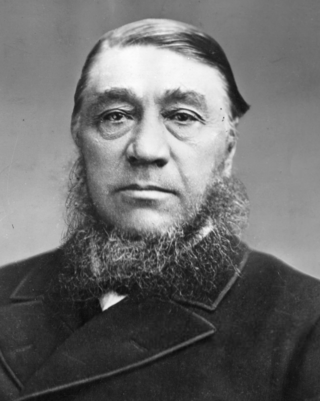 12
Stephanus Johannes Paulus Kruger, better known as Paul Kruger, was a South African politician. He was one of the dominant political and military figures in 19th-century South Africa, and State...
12
Stephanus Johannes Paulus Kruger, better known as Paul Kruger, was a South African politician. He was one of the dominant political and military figures in 19th-century South Africa, and State...
Andries Pretorius
 11
Andries Wilhelmus Jacobus Pretorius was a leader of the Boers who was instrumental in the creation of the South African Republic, as well as the earlier but short-lived Natalia Republic, in...
11
Andries Wilhelmus Jacobus Pretorius was a leader of the Boers who was instrumental in the creation of the South African Republic, as well as the earlier but short-lived Natalia Republic, in...
Louis Botha
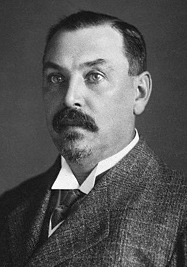 10
Louis Botha was a South African politician who was the first prime minister of the Union of South Africa – the forerunner of the modern South African state. A Boer war veteran during the Second Boer...
10
Louis Botha was a South African politician who was the first prime minister of the Union of South Africa – the forerunner of the modern South African state. A Boer war veteran during the Second Boer...
Beyers Naudé
 9
Christiaan Frederick Beyers Naudé was a South African Afrikaner Calvinist Dominee, theologian and the leading Afrikaner anti-apartheid activist. He was known simply as Beyers Naudé, or more...
9
Christiaan Frederick Beyers Naudé was a South African Afrikaner Calvinist Dominee, theologian and the leading Afrikaner anti-apartheid activist. He was known simply as Beyers Naudé, or more...
Prince Albert of Saxe-Coburg and Gotha
 9
Prince Albert of Saxe-Coburg and Gotha was the husband of Queen Victoria. As such, he was consort of the British monarch from their marriage on 10 February 1840, until his death in 1861. He received...
9
Prince Albert of Saxe-Coburg and Gotha was the husband of Queen Victoria. As such, he was consort of the British monarch from their marriage on 10 February 1840, until his death in 1861. He received...
Jan Smuts
 7
Field Marshal Jan Christian Smuts, was a South African statesman, military leader and philosopher. In addition to holding various military and cabinet posts, he served as prime minister of the Union...
7
Field Marshal Jan Christian Smuts, was a South African statesman, military leader and philosopher. In addition to holding various military and cabinet posts, he served as prime minister of the Union...
Brett Murray
 7
Brett Murray is a South African artist mostly known for his steel and mixed media wall sculptures. He was born in Pretoria, South Africa. Murray has a master's degree in fine art from the Michaelis...
7
Brett Murray is a South African artist mostly known for his steel and mixed media wall sculptures. He was born in Pretoria, South Africa. Murray has a master's degree in fine art from the Michaelis...
Stanley Mathabatha
 7
Chupu Stanley Mathabatha is a South African politician who is currently the Premier of Limpopo. He was elected to the position in July 2013 after the resignation of Cassel Mathale. He was previously...
7
Chupu Stanley Mathabatha is a South African politician who is currently the Premier of Limpopo. He was elected to the position in July 2013 after the resignation of Cassel Mathale. He was previously...
Gideon Brand van Zyl
 6
Gideon Brand van Zyl, PC was Governor-General of the Union of South Africa from 1945 to 1950.
6
Gideon Brand van Zyl, PC was Governor-General of the Union of South Africa from 1945 to 1950.
Piet Retief
 6
Pieter Mauritz Retief was a Voortrekker leader. Settling in 1814 in the frontier region of the Cape Colony, he later assumed command of punitive expeditions during the sixth Xhosa War. He became a...
6
Pieter Mauritz Retief was a Voortrekker leader. Settling in 1814 in the frontier region of the Cape Colony, he later assumed command of punitive expeditions during the sixth Xhosa War. He became a...
Daniel Theron
 6
Daniël Johannes Stephanus "Danie" Theron was a Boer Army military leader and master scout. Born in Tulbagh, Cape Colony, he was raised in Bethlehem, Orange Free State. He is best known as the driving...
6
Daniël Johannes Stephanus "Danie" Theron was a Boer Army military leader and master scout. Born in Tulbagh, Cape Colony, he was raised in Bethlehem, Orange Free State. He is best known as the driving...
Chris Hani
 6
Chris Hani, born Martin Thembisile Hani, was the leader of the South African Communist Party and chief of staff of uMkhonto we Sizwe, the armed wing of the African National Congress (ANC). He was a...
6
Chris Hani, born Martin Thembisile Hani, was the leader of the South African Communist Party and chief of staff of uMkhonto we Sizwe, the armed wing of the African National Congress (ANC). He was a...
Edward VIII
 6
Edward VIII, later known as the Duke of Windsor, was King of the United Kingdom and the Dominions of the British Empire, and Emperor of India, from 20 January 1936 until his abdication in December of...
6
Edward VIII, later known as the Duke of Windsor, was King of the United Kingdom and the Dominions of the British Empire, and Emperor of India, from 20 January 1936 until his abdication in December of...
Thabo Mbeki
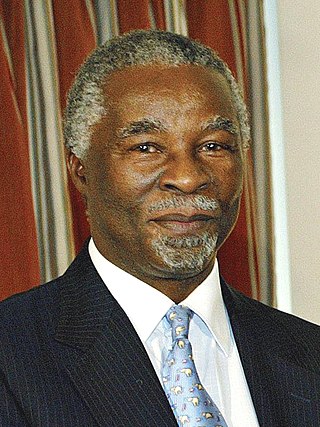 5
Thabo Mvuyelwa Mbeki is a South African politician who served as the second president of South Africa from 14 June 1999 to 24 September 2008, when he resigned at the request of his party, the African...
5
Thabo Mvuyelwa Mbeki is a South African politician who served as the second president of South Africa from 14 June 1999 to 24 September 2008, when he resigned at the request of his party, the African...
George Grey
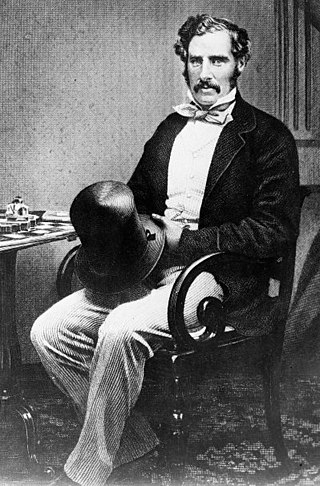 5
Sir George Grey, KCB was a British soldier, explorer, colonial administrator and writer. He served in a succession of governing positions: Governor of South Australia, twice Governor of New Zealand,...
5
Sir George Grey, KCB was a British soldier, explorer, colonial administrator and writer. He served in a succession of governing positions: Governor of South Australia, twice Governor of New Zealand,...
Erasmus
 5
Desiderius Erasmus Roterodamus was a Dutch Christian humanist, Catholic theologian, educationalist, satirist, and philosopher. Through his vast number of translations, books, essays, prayers and...
5
Desiderius Erasmus Roterodamus was a Dutch Christian humanist, Catholic theologian, educationalist, satirist, and philosopher. Through his vast number of translations, books, essays, prayers and...
Cornelis Jacobus Langenhoven
 5
Cornelis Jacobus Langenhoven, who published under his initials C.J. Langenhoven, was a South African poet who played a major role in the development of Afrikaans literature and cultural history. His...
5
Cornelis Jacobus Langenhoven, who published under his initials C.J. Langenhoven, was a South African poet who played a major role in the development of Afrikaans literature and cultural history. His...
William Nicol (Transvaal)
 5
Rev Dr. William Nicol was a Dutch Reformed minister, theologian, educator and Administrator of the Transvaal Province of South Africa.
5
Rev Dr. William Nicol was a Dutch Reformed minister, theologian, educator and Administrator of the Transvaal Province of South Africa.
Sarel Cilliers
 5
Charl (Sarel) Arnoldus Cilliers was a Voortrekker leader and a preacher. With Andries Pretorius, he led the Boers to a huge victory over the Zulus at the Battle of Blood River in 1838. In particular,...
5
Charl (Sarel) Arnoldus Cilliers was a Voortrekker leader and a preacher. With Andries Pretorius, he led the Boers to a huge victory over the Zulus at the Battle of Blood River in 1838. In particular,...
Ben Schoeman
 5
Barend Jacobus "Ben" Schoeman was a South African politician of the National Party prominent during the apartheid era. He served as the Minister of Labour from 1948 to 1954, and the Minister of...
5
Barend Jacobus "Ben" Schoeman was a South African politician of the National Party prominent during the apartheid era. He served as the Minister of Labour from 1948 to 1954, and the Minister of...
Martinus Theunis Steyn
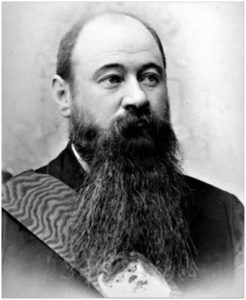 5
Martinus Theunis Steyn was a South African lawyer, politician, and statesman. He was the sixth and last president of the independent Orange Free State from 1896 to 1902.
5
Martinus Theunis Steyn was a South African lawyer, politician, and statesman. He was the sixth and last president of the independent Orange Free State from 1896 to 1902.
Solomon Mahlangu
 4
Solomon Kalushi Mahlangu was a South African freedom fighter, struggle activist and operative of the African National Congress (ANC) militant wing, Umkhonto we Sizwe (MK). He was convicted of murder...
4
Solomon Kalushi Mahlangu was a South African freedom fighter, struggle activist and operative of the African National Congress (ANC) militant wing, Umkhonto we Sizwe (MK). He was convicted of murder...
Frances Baard
 4
Frances Goitsemang Baard OMSS OLG was a South African trade unionist, organiser for the African National Congress Women's League and a Patron of the United Democratic Front, who was commemorated in...
4
Frances Goitsemang Baard OMSS OLG was a South African trade unionist, organiser for the African National Congress Women's League and a Patron of the United Democratic Front, who was commemorated in...
Elias Motsoaledi
 4
Elias Mathope Motsoaledi OMSG was a South African anti-apartheid activist. He was Accused No.9 in the Rivonia Trial and was sentenced to life imprisonment in July 1963 with a group of anti-Apartheid...
4
Elias Mathope Motsoaledi OMSG was a South African anti-apartheid activist. He was Accused No.9 in the Rivonia Trial and was sentenced to life imprisonment in July 1963 with a group of anti-Apartheid...
Christiaan Frederik Beyers
 4
Christiaan Frederik Beyers was a Boer general during the Second Boer War.
4
Christiaan Frederik Beyers was a Boer general during the Second Boer War.
Robert Sobukwe
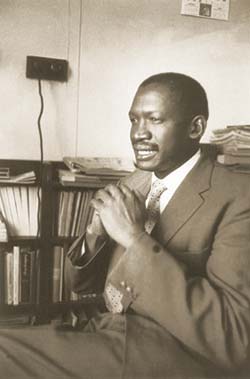 3
Robert Mangaliso Sobukwe OMSG was a South African anti-apartheid revolutionary and founding member of the Pan Africanist Congress (PAC), serving as the first president of the organization.
3
Robert Mangaliso Sobukwe OMSG was a South African anti-apartheid revolutionary and founding member of the Pan Africanist Congress (PAC), serving as the first president of the organization.
Steve Biko
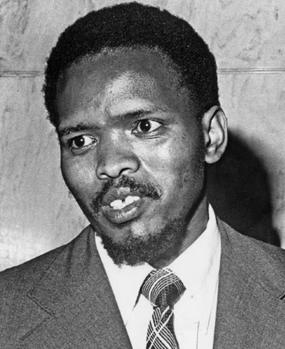 3
Bantu Stephen Biko OMSG was a South African anti-apartheid activist. Ideologically an African nationalist and African socialist, he was at the forefront of a grassroots anti-apartheid campaign known...
3
Bantu Stephen Biko OMSG was a South African anti-apartheid activist. Ideologically an African nationalist and African socialist, he was at the forefront of a grassroots anti-apartheid campaign known...
Stanza Bopape
 3
Johannes Maisha Stanza Bopape was 'n ANC-aktivis en burgerlike leier. Hy is in 1987 verkies as die eerste hoofsekretaris van die South African National Civic Organisation (SANCO) in Mamelodi. Die...
3
Johannes Maisha Stanza Bopape was 'n ANC-aktivis en burgerlike leier. Hy is in 1987 verkies as die eerste hoofsekretaris van die South African National Civic Organisation (SANCO) in Mamelodi. Die...
Ismail Mahomed
 3
Ismail Mahomed SCOB SC was a South African lawyer and jurist who served as the first black Chief Justice of South Africa from January 1997 until his death in June 2000. He was also the Chief Justice...
3
Ismail Mahomed SCOB SC was a South African lawyer and jurist who served as the first black Chief Justice of South Africa from January 1997 until his death in June 2000. He was also the Chief Justice...
Lord Kelvin
 3
William Thomson, 1st Baron Kelvin, was a British mathematician, mathematical physicist and engineer born in Belfast. He was the professor of Natural Philosophy at the University of Glasgow for 53...
3
William Thomson, 1st Baron Kelvin, was a British mathematician, mathematical physicist and engineer born in Belfast. He was the professor of Natural Philosophy at the University of Glasgow for 53...
Dirkie Uys
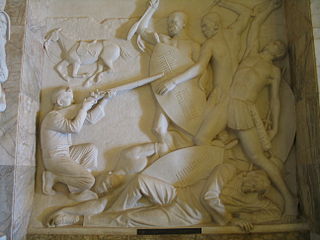 3
Dirk Cornelis "Dirkie" Uys was a Voortrekker hero during the Great Trek.
3
Dirk Cornelis "Dirkie" Uys was a Voortrekker hero during the Great Trek.
Walter Sisulu
 3
Walter Max Ulyate Sisulu was a South African anti-apartheid activist and member of the African National Congress (ANC). Between terms as ANC Secretary-General (1949–1954) and ANC Deputy President...
3
Walter Max Ulyate Sisulu was a South African anti-apartheid activist and member of the African National Congress (ANC). Between terms as ANC Secretary-General (1949–1954) and ANC Deputy President...
Wilhelmina of the Netherlands
 3
Wilhelmina was Queen of the Netherlands from 1890 until her abdication in 1948. She reigned for nearly 58 years, making her the longest-reigning monarch in Dutch history, as well as the...
3
Wilhelmina was Queen of the Netherlands from 1890 until her abdication in 1948. She reigned for nearly 58 years, making her the longest-reigning monarch in Dutch history, as well as the...
Albertina Sisulu
 3
Nontsikelelo Albertina Sisulu OMSG was a South African anti-apartheid activist, and the wife of fellow activist Walter Sisulu (1912–2003). She was affectionately known as "Ma Sisulu" throughout her...
3
Nontsikelelo Albertina Sisulu OMSG was a South African anti-apartheid activist, and the wife of fellow activist Walter Sisulu (1912–2003). She was affectionately known as "Ma Sisulu" throughout her...
Lillian Ngoyi
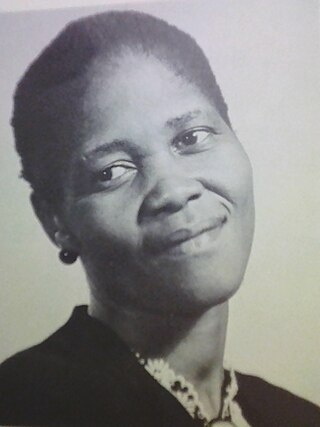 3
Lilian Masediba Matabane Ngoyi, "Mma Ngoyi", OMSG was a South African anti-apartheid activist. She was the first woman elected to the executive committee of the African National Congress, and helped...
3
Lilian Masediba Matabane Ngoyi, "Mma Ngoyi", OMSG was a South African anti-apartheid activist. She was the first woman elected to the executive committee of the African National Congress, and helped...
Rahima Moosa
 3
Rahima Moosa OLS was a member of the Transvaal Indian Congress and later the African National Congress. She is well known for the role she played in the national uprising of women on 9 August 1956....
3
Rahima Moosa OLS was a member of the Transvaal Indian Congress and later the African National Congress. She is well known for the role she played in the national uprising of women on 9 August 1956....
Ben Viljoen
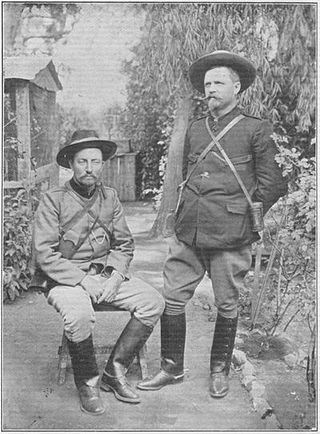 3
Benjamin Johannes "Ben" Viljoen was an Afrikaner-American Consul, soldier, farmer, Maderista, and Boer general. Viljoen was born in a cave in the Wodehouse district of the Cape Colony to Susanna...
3
Benjamin Johannes "Ben" Viljoen was an Afrikaner-American Consul, soldier, farmer, Maderista, and Boer general. Viljoen was born in a cave in the Wodehouse district of the Cape Colony to Susanna...
James the Great
 3
James the Great was one of the Twelve Apostles of Jesus. According to the New Testament, he was the second of the apostles to die, and the first to be martyred. Saint James is the patron saint of...
3
James the Great was one of the Twelve Apostles of Jesus. According to the New Testament, he was the second of the apostles to die, and the first to be martyred. Saint James is the patron saint of...
Andrew the Apostle
 3
Andrew the Apostle, also called Saint Andrew, was an apostle of Jesus. According to the New Testament, he was a fisherman and one of the Twelve Apostles chosen by Jesus. The title First-Called stems...
3
Andrew the Apostle, also called Saint Andrew, was an apostle of Jesus. According to the New Testament, he was a fisherman and one of the Twelve Apostles chosen by Jesus. The title First-Called stems...
Nico Smith
 2
Nico Smith was a South African Afrikaner minister and prominent opponent of apartheid. Smith was a professor of theology at the University of Stellenbosch, a member of the Afrikaner Broederbond...
2
Nico Smith was a South African Afrikaner minister and prominent opponent of apartheid. Smith was a professor of theology at the University of Stellenbosch, a member of the Afrikaner Broederbond...
Helen Joseph
 2
Helen Beatrice Joseph OMSG was a South African anti-apartheid activist. Born in Sussex, England, Helen graduated with a degree in English from the University of London in 1927 and then departed for...
2
Helen Beatrice Joseph OMSG was a South African anti-apartheid activist. Born in Sussex, England, Helen graduated with a degree in English from the University of London in 1927 and then departed for...
Simon van der Stel
 2
Simon van der Stel was the first Governor of the Dutch Cape Colony (1691), the settlement at the Cape of Good Hope. He was interested in botany, establishing vineyards Groot and Klein Constantia, and...
2
Simon van der Stel was the first Governor of the Dutch Cape Colony (1691), the settlement at the Cape of Good Hope. He was interested in botany, establishing vineyards Groot and Klein Constantia, and...
Siener van Rensburg
 2
Nicolaas Pieter Johannes Janse van Rensburg was a Boer from the South African Republic – also known as the Transvaal Republic – and later a citizen of South Africa who was considered by some to be a...
2
Nicolaas Pieter Johannes Janse van Rensburg was a Boer from the South African Republic – also known as the Transvaal Republic – and later a citizen of South Africa who was considered by some to be a...
C. R. Swart
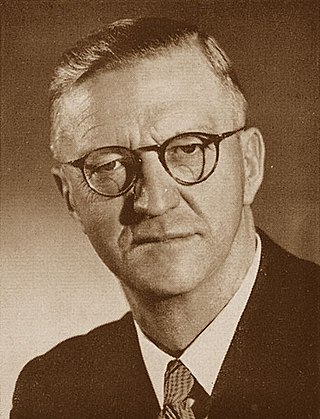 2
Charles Robberts Swart, nicknamed "Blackie", was a South African politician who served as the last governor-general of the Union of South Africa from 1959 to 1961 and the first state president of the...
2
Charles Robberts Swart, nicknamed "Blackie", was a South African politician who served as the last governor-general of the Union of South Africa from 1959 to 1961 and the first state president of the...
Josias Hendrik Otto du Plessis
 2
Josias Hendrik Otto du Plessis was Administrator of the Cape Province in South Africa from 1953 to 1958.
2
Josias Hendrik Otto du Plessis was Administrator of the Cape Province in South Africa from 1953 to 1958.
Abdullah Haron
 2
Abdullah Haron, also known as Imam Haron, was a South African Muslim cleric and anti-apartheid activist. He is best known for his anti-apartheid activism and subsequent death by the Security Branch...
2
Abdullah Haron, also known as Imam Haron, was a South African Muslim cleric and anti-apartheid activist. He is best known for his anti-apartheid activism and subsequent death by the Security Branch...
Gustav Preller
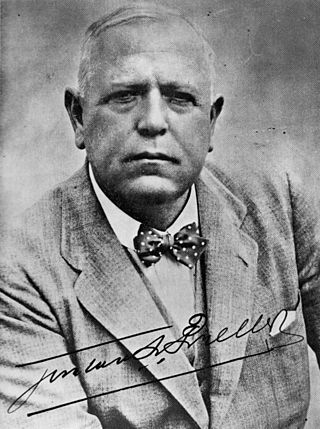 2
Gustav Schoeman Preller was a journalist, historian, writer and literary critic. He fought for the recognition of Afrikaans. Preller helped the Afrikaner to realize
the importance of the history of...
2
Gustav Schoeman Preller was a journalist, historian, writer and literary critic. He fought for the recognition of Afrikaans. Preller helped the Afrikaner to realize
the importance of the history of...
Deon van der Walt
 2
Deon van der Walt, was a South African tenor.
2
Deon van der Walt, was a South African tenor.
Albert Luthuli
 2
Albert John Luthuli was a South African anti-apartheid activist, traditional leader, and politician who served as the President-General of the African National Congress from 1952 until his death in...
2
Albert John Luthuli was a South African anti-apartheid activist, traditional leader, and politician who served as the President-General of the African National Congress from 1952 until his death in...
Govan Mbeki
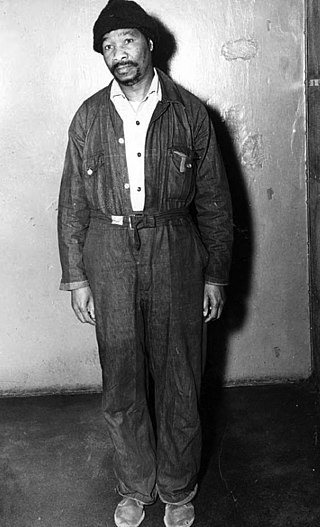 2
Govan Archibald Mvunyelwa Mbeki was a South African politician, military commander, Communist leader who served as the Secretary of Umkhonto we Sizwe, at its inception in 1961. He was also the son of...
2
Govan Archibald Mvunyelwa Mbeki was a South African politician, military commander, Communist leader who served as the Secretary of Umkhonto we Sizwe, at its inception in 1961. He was also the son of...
D. F. Malan
 2
Daniël François Malan was a South African politician who served as the fourth prime minister of South Africa from 1948 to 1954. The National Party implemented the system of apartheid, which enforced...
2
Daniël François Malan was a South African politician who served as the fourth prime minister of South Africa from 1948 to 1954. The National Party implemented the system of apartheid, which enforced...
J. G. Strijdom
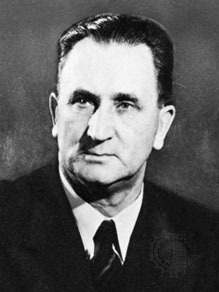 2
Johannes Gerhardus Strijdom, also known as Hans Strijdom and nicknamed the Lion of the North or the Lion of Waterberg, was the fifth prime minister of South Africa from 30 November 1954 to his death...
2
Johannes Gerhardus Strijdom, also known as Hans Strijdom and nicknamed the Lion of the North or the Lion of Waterberg, was the fifth prime minister of South Africa from 30 November 1954 to his death...
Emily Hobhouse
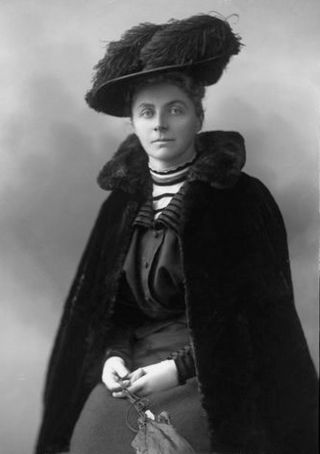 2
Emily Hobhouse was a British welfare campaigner, anti-war activist, and pacifist. She is primarily remembered for bringing to the attention of the British public, and working to change, the deprived...
2
Emily Hobhouse was a British welfare campaigner, anti-war activist, and pacifist. She is primarily remembered for bringing to the attention of the British public, and working to change, the deprived...
Joe Slovo
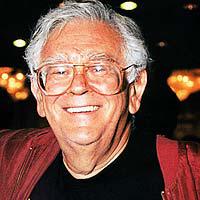 2
Joe Slovo was a South African politician, and an opponent of the apartheid system. A Marxist-Leninist, he was a long-time leader and theorist in the South African Communist Party (SACP), a leading...
2
Joe Slovo was a South African politician, and an opponent of the apartheid system. A Marxist-Leninist, he was a long-time leader and theorist in the South African Communist Party (SACP), a leading...
Alois Hugo Nellmapius
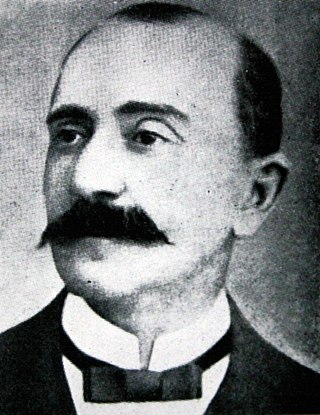 2
Alois Hugo Nellmapius, was a South African businessman, industrialist and pioneer conservationist.
2
Alois Hugo Nellmapius, was a South African businessman, industrialist and pioneer conservationist.
Totius (poet)
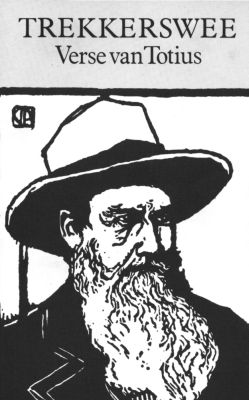 2
Jacob Daniël du Toit, better known by his pen name Totius, was an Afrikaner poet.
2
Jacob Daniël du Toit, better known by his pen name Totius, was an Afrikaner poet.
Hendrik Potgieter
 2
Andries Hendrik Potgieter, known as Hendrik Potgieter was a Voortrekker leader. He served as the first head of state of Potchefstroom from 1840 and 1845 and also as the first head of state of...
2
Andries Hendrik Potgieter, known as Hendrik Potgieter was a Voortrekker leader. He served as the first head of state of Potchefstroom from 1840 and 1845 and also as the first head of state of...
Jan Shoba
 2
Jan Shoba was a leader in the Azanian People's Liberation Army, the armed wing of the Pan Africanist Congress (PAC). He was a member of their High Command. In the late 1980s the military wing (APLA)...
2
Jan Shoba was a leader in the Azanian People's Liberation Army, the armed wing of the Pan Africanist Congress (PAC). He was a member of their High Command. In the late 1980s the military wing (APLA)...
Hendrik Verwoerd
 2
Hendrik Frensch Verwoerd, also known as H. F. Verwoerd, was a South African politician, scholar, and newspaper editor who was Prime Minister of South Africa and is commonly regarded as the architect...
2
Hendrik Frensch Verwoerd, also known as H. F. Verwoerd, was a South African politician, scholar, and newspaper editor who was Prime Minister of South Africa and is commonly regarded as the architect...
Christiaan de Wet
 2
Christiaan Rudolf de Wet was a Boer general, rebel leader and politician.
2
Christiaan Rudolf de Wet was a Boer general, rebel leader and politician.
Jan Hendrik Hofmeyr (1894–1948)
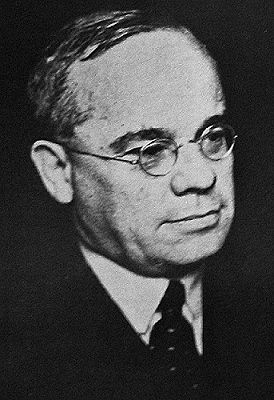 2
Jan Hendrik Hofmeyr was a South African politician and intellectual in the years preceding apartheid. In his lifetime he was regarded as one of the cleverest men in the country, and it was widely...
2
Jan Hendrik Hofmeyr was a South African politician and intellectual in the years preceding apartheid. In his lifetime he was regarded as one of the cleverest men in the country, and it was widely...
Saint George
 2
Saint George, also George of Lydda, was an early Christian martyr who is venerated as a saint in Christianity. According to tradition, he was a soldier in the Roman army. Of Cappadocian Greek origin,...
2
Saint George, also George of Lydda, was an early Christian martyr who is venerated as a saint in Christianity. According to tradition, he was a soldier in the Roman army. Of Cappadocian Greek origin,...
Sytze Wierda
 2
Sytze Wopkes Wierda was a Dutch architect and engineer who played an important role in the architecture of the South African Republic in the late 19th and early 20th centuries.
2
Sytze Wopkes Wierda was a Dutch architect and engineer who played an important role in the architecture of the South African Republic in the late 19th and early 20th centuries.
Dan Pienaar
 2
Major General Daniel Hermanus Pienaar was a South African World War II military commander.
2
Major General Daniel Hermanus Pienaar was a South African World War II military commander.
George Washington
 2
George Washington was an American Founding Father, military officer, and politician who served as the first president of the United States from 1789 to 1797. Appointed by the Second Continental...
2
George Washington was an American Founding Father, military officer, and politician who served as the first president of the United States from 1789 to 1797. Appointed by the Second Continental...
Louis Pasteur
 2
Louis Pasteur was a French chemist, pharmacist, and microbiologist renowned for his discoveries of the principles of vaccination, microbial fermentation, and pasteurization, the last of which was...
2
Louis Pasteur was a French chemist, pharmacist, and microbiologist renowned for his discoveries of the principles of vaccination, microbial fermentation, and pasteurization, the last of which was...
Galbraith Lowry Cole
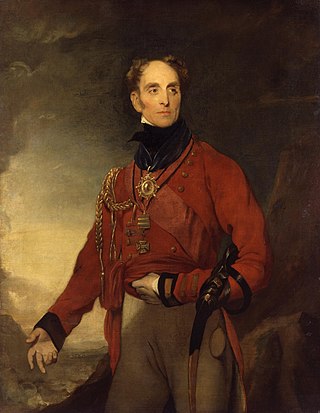 2
General Sir Galbraith Lowry Cole was an Anglo-Irish British Army officer and politician.
2
General Sir Galbraith Lowry Cole was an Anglo-Irish British Army officer and politician.
Thomas Edison
 2
Thomas Alva Edison was an American inventor and businessman. He developed many devices in fields such as electric power generation, mass communication, sound recording, and motion pictures. These...
2
Thomas Alva Edison was an American inventor and businessman. He developed many devices in fields such as electric power generation, mass communication, sound recording, and motion pictures. These...